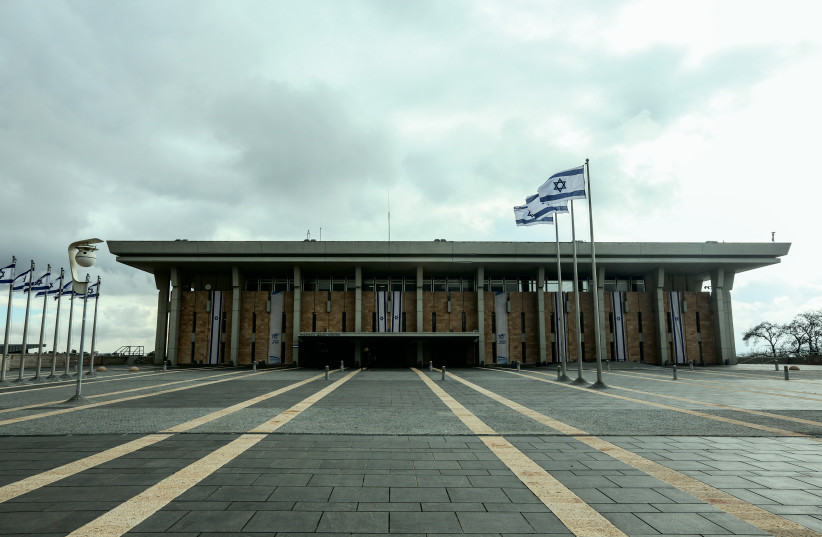The Ra’am Party’s Electricity Law, which passed in the Knesset this past week, constitutes a leap of faith – and not in a good way.
The coalition MKs who voted for the amendment were denied the opportunity to consider the facts, the long- and short-term ramifications, and even the scope of the law, and were ramrodded into purposefully ignoring the gaping holes in oversight and enforcement that will inevitably lead to ruptured land-use policy, the disruption of organized planning for the future, and the breakdown of the rule of law.
Earlier this week, following stormy committee debates, application of highly unusual parliamentary rules, dismissal of the Knesset legal counsel’s explicit and adamant recommendations, and a confrontational plenum session resulting in one of the most unusual votes ever conducted on the Knesset floor, the parliament passed legislation sponsored by the Ra’am Party that will allow connection of unlicensed structures to national electricity, water and gas systems.
Dozens of legislative objections were submitted to Ra’am’s Electricity Law, all of which were voted down, including the opposition’s motion that the law be extended beyond the Arab sector and applied to young Jewish communities in Judea and Samaria as well.
But all the background and foreground noise, the name-calling, shouted insults, feigned and real moral indignation, in-your-face confrontations and the opposition’s boycott of the majority of the voting process – all of it was essentially a distraction. The scenery overtook the plot; the political backdrop obscured the substance of the law and its far-reaching impact.

There should be no doubt in anyone’s mind that the Electricity Law is bad legislation that was passed by a bad legislative process. The law not only rewards illegal construction, it lays to waste the entire concept of land-use and planning policy.
What does this new law do that the old law didn’t? Even before Ra’am used its political leverage to pass this law, infrastructure hookups could be expedited for neighborhoods or individual structures that lacked permits but which the government actively sought to regulate or legalize.
The new law takes what was an exception and makes it the rule. It takes a clause that was applicable to select outlier cases and applies it in wholesale fashion and virtually indiscriminately. How indiscriminately? No one – not even the members of Knesset who voted for it – actually knows, and that’s part of the problem.
As the legislation made its way through the Knesset Interior Committee, MKs repeatedly requested data on the impact of its numerous clauses, but the committee chairman, MK Waleed Taha (Ra’am), would not allow the professionals to present this crucial information to the committee members.
The legislative process was one of the most brutal, nondemocratic, politicized processes in Knesset history – and like other highly questionable pieces of legislation in the recent and not-so-recent past, the consequences for the State of Israel will be irrevocable.
The new law, and the procedures stipulated for its implementation as addenda to the legislation, lack effective mechanisms for Interior Ministry oversight. There is no apparatus for monitoring the impact or ramifications of “whitewashing” unplanned, non-permitted structures, no method of assessing the long- or short-term damage to Israel’s ability to plan or build new homes, new neighborhoods, new roads, new schools or public service structures or sewage, water or communications systems to improve the lives of present and future residents.
The Arab MKs, on the other hand, knew precisely what they were doing when they forced this regressive, backward, destructive legislation to a lightning-speed vote.
The members of the Ra’am-Yamina coalition that allowed them to get away with it have not only brought Israel’s democratic institutions to the brink of collapse, they have endangered the future of land-use policy and the rule of law in the State of Israel in ways that will take years to correct, if at all.
The writer is director of the International Division of Regavim, an Israeli nongovernmental organization dedicated to the protection of Israel’s land resources.
